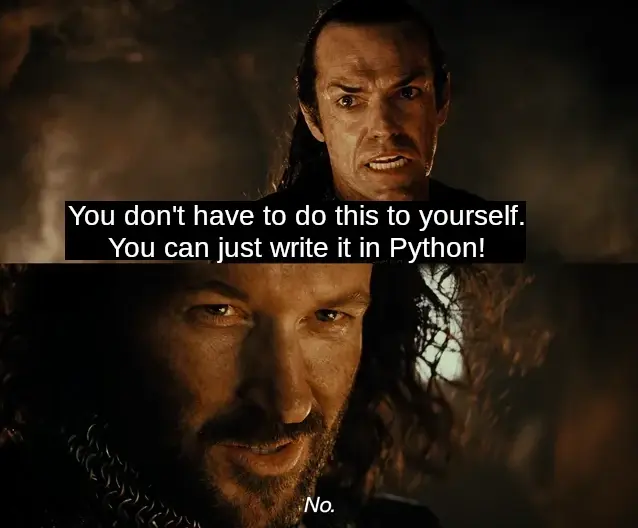this post was submitted on 31 Mar 2024
27 points (100.0% liked)
libre
9840 readers
29 users here now
Welcome to libre
A comm dedicated to the fight for free software with an anti-capitalist perspective.
The struggle for libre computing cannot be disentangled from other forms of socialist reform. One must be willing to reject proprietary software as fiercely as they would reject capitalism. Luckily, we are not alone.

Resources
- Free Software, Free Society provides an excellent primer in the origins and theory around free software and the GNU Project, the pioneers of the Free Software Movement.
- Switch to GNU/Linux! If you're still using Windows in
$CURRENT_YEAR, flock to Linux Mint!; Apple Silicon users will want to check out Asahi Linux.
Rules
- Be on topic: Posts should be about free software and other hacktivst struggles. Topics about general tech news should be in the technology comm or programming comm. That doesn't mean all posts have to be serious though, memes are welcome!
- Avoid using misleading terms/speading misinformation: Here's a great article about what those words are. In short, try to avoid parroting common Techbro lingo and topics.
- Avoid being confrontational: People are in different stages of liberating their computing, focus on informing rather than accusing. Debatebro nonsense is not tolerated.
- All site-wide rules still apply
Artwork
- Xenia was meant to be an alternative to Tux and was created (licensed under CC0) by Alan Mackey in 1996.
- Comm icon (of Xenia the Linux mascot) was originally created by @ioletsgo
- Comm banner is a close up of "Dorlotons Degooglisons" by David Revoy (CC-BY 4.0) for Framasoft
founded 3 years ago
MODERATORS
you are viewing a single comment's thread
view the rest of the comments
view the rest of the comments

this has also been my (limited) experience with dbus. Unusable for mere mortals (people who don't have extensive experience with it and don't have time to just read the source code and piece it together), by way of being almost completely undocumented.
It seems like a really useful thing that would be 5x better if it was more easily usable/documented
I unironically hope "document how to use this code" for stuff like is a good use for LLMs.
Let AI do the "boring" work
I wish they didn't exist more than anything. I don't want to see them, I don't want to learn them and how to interpret and coax their garbled pronouncements, but if they actually become genuinely good at things like this that would be an acceptable outcome too. Its a shame they won't. Maybe they could do better than nothing though!